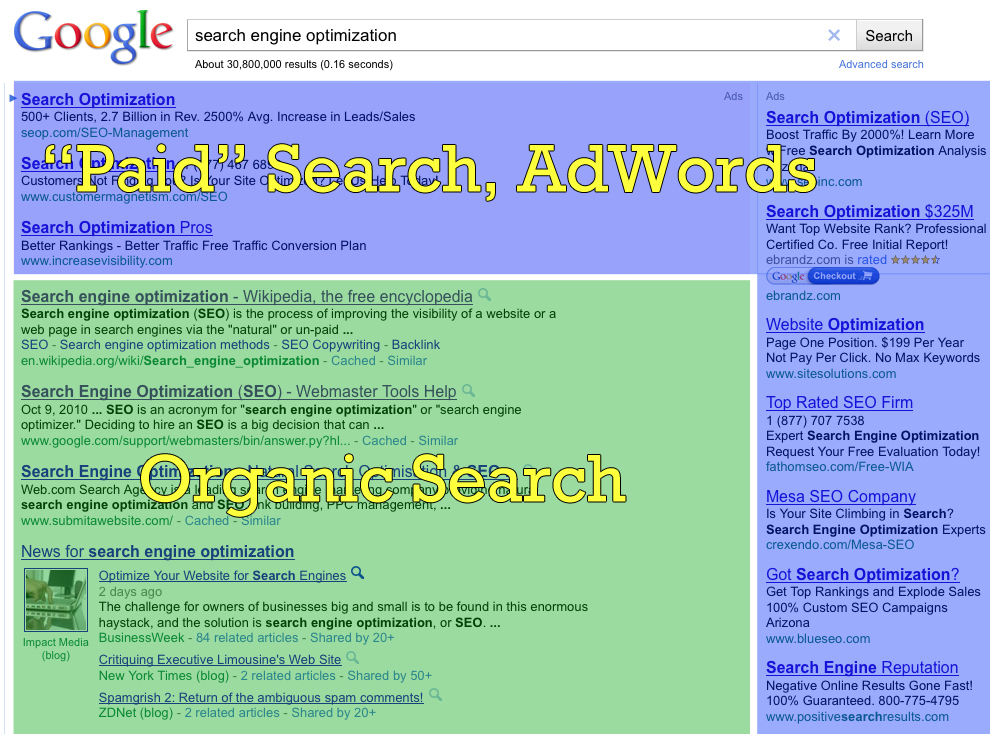Every time you conduct a search on search engines, they typically show a mix of organic and paid results in response to user inquiries.
The organic results are the primary listings — frequently tagged as “Web Results” or something along those lines.
Paid advertisements appear separately on the search results pages and are usually marked as “Sponsored” listings.

The search engine’s organic search results for a specific keyword are produced through complex ranking algorithms that assess how relevant the indexed web pages are to the entered keywords, along with numerous other factors. These organic listings represent the genuine outcome of the computations that make up a search engine’s ranking system. Achieving a top organic search ranking can only be accomplished through successful search engine optimization (SEO). Sometimes, certain websites may automatically achieve high rankings for very specific and low-competition keywords.
Paid search engine advertising provides an alternative or a supplement to optimizing a website for organic search engine results. The majority of paid search engine marketing revolves around the pay-per-click (PPC) model. In simple terms, PPC enables advertisers (i.e., website or business owners) to bid for top positions on certain keywords. The advertiser who offers the highest bid secures the top position for that keyword until someone outbids them. The second-highest bid is awarded the number two position, while the third-highest bid takes the third spot, and so on.
If you are ready to invest in it — and possibly partake in competitive bidding with other advertisers — PPC can be an appealing choice. Numerous large e-businesses depend on a mix of paid ads and focused SEO.
Thanks for visiting. For queries and suggestions, emails are welcome at learnweb@hostingcolumn.com.
Subscribe to Hosting Column for the latest updates and posts.

